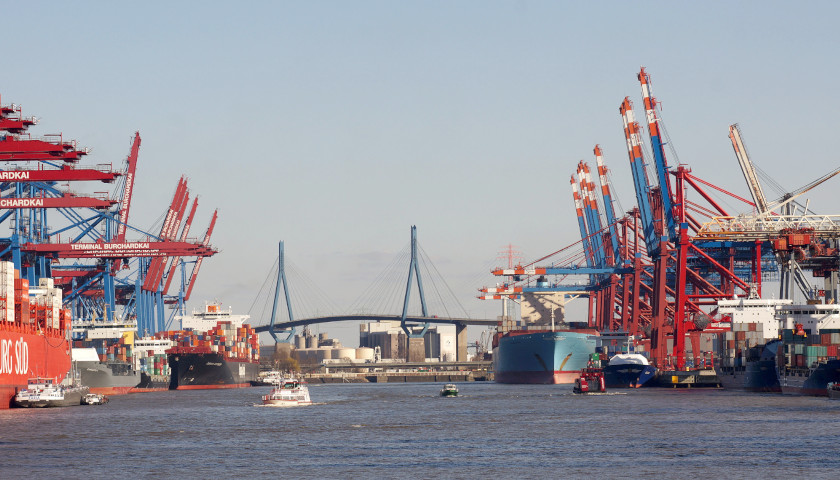by Micaela Burrow
In a compromise, Germany’s cabinet agreed to allow China Ocean Shipping Company a nearly 25 percent stake in the country’s largest port Wednesday, according to Reuters.
German Chancellor Olaf Scholz and Social Democrat ministry leaders pushed the deal through in spite of opposition within the cabinet, landing on a 24.9 percent stake in one of three terminals in Germany’s Hamburg port, Reuters reported. Although officials say they will not allow Cosco any say over port operations or management, it drew sharp criticism from members of the foreign ministry who have grown wary of foreign investment.
The foreign ministry went so far as to compose a note containing its rejection of the deal, Reuters reported, citing two government sources.
 The investment “disproportionately expands China’s strategic influence on German and European transport infrastructure as well as Germany’s dependence on China”, the document says, according to Reuters. The economy ministry as well as four others signed on to the note.
The investment “disproportionately expands China’s strategic influence on German and European transport infrastructure as well as Germany’s dependence on China”, the document says, according to Reuters. The economy ministry as well as four others signed on to the note.
The deal gave the Chinese state-owned company less than the 35% stake planned, but ministers warned of “considerable risks that arise when elements of the European transport infrastructure are influenced and controlled by China – while China itself does not allow Germany to participate in Chinese ports,” Reuters reported.
It exposes Germany to the risk that China could weaponize control over critical infrastructure in the event of a crisis, just as Russia has manipulated the supply of natural gas, on which Germany was heavily dependent for energy prior to the Russian invasion of Ukraine, to political ends, the ministers warned.
Scholz rammed through the deal, contravening his coalition partners, as he did on Oct. 17 when he ordered nuclear energy facilities to remain operational until April 2023 in spite a vote from economy minister Robert Habeck and Green Party leaders to shut down the plants by the end of 2022.
Scholz will travel to China next week, Reuters reported.
“Cooperation benefits both sides,” Chinese foreign ministry spokesperson Wang Wenbin told reporters Wednesday. “We hope relevant parties will view China-Germany practical cooperation in a rational light and stop groundless hype.”
In September, German economy minister Robert Habeck revealed the government is developing a slate of trade policies intended to reduce Germany’s dependence on China, Reuters reported.
“We cannot allow ourselves to be blackmailed,” he said, according to Reuters. While he did not provide specific details of the proposed measures, he said they would include stricter guidelines on accepting Chinese investments and diversification of trading partners.
European leaders have called to divest from ties to China as evidence mounts of Beijing’s human rights abuses and economic exploitation.
The German government did not immediately respond to the Daily Caller News Foundation’s request for comment.
– – –
Micaela Burrow is a reporter at Daily Caller News Foundation.
Photo “Port of Hamburg” by Miso Miso. CC BY-SA 3.0.





